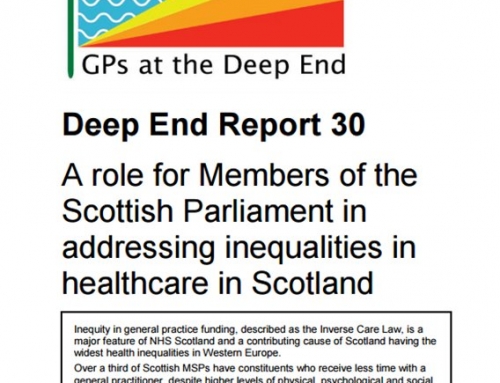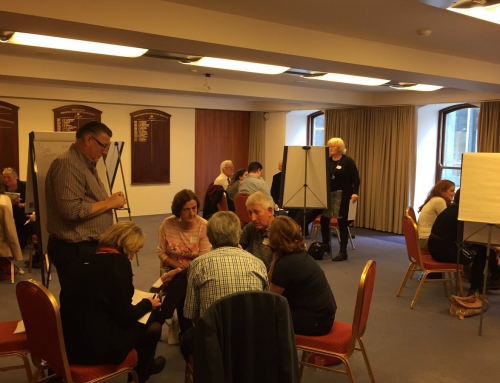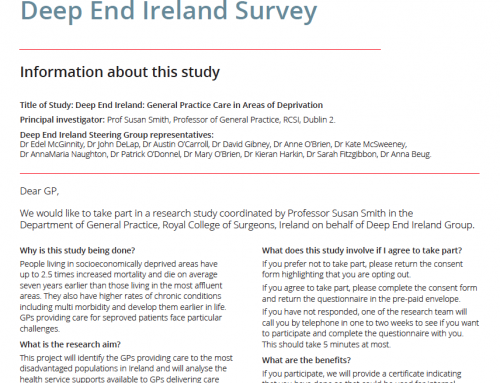Deep End Ireland Update, November 2019
Patrick O’Donnell
Susan Smith
It has been a busy six months for Deep End Ireland. We have finally seen some progress on national initiatives that may allow us to better support and care for our patients across the country. Our 2018/2019 focus on addressing health inequalities affecting children culminated in us hosting a successful national meeting in June. We had plenary talks from Prof Graham Watt on the exceptional potential of general practice, and from Dr Sharon Lambert on adverse childhood experiences. We then saw Dr Edel McGinnity, one of our founder members, interview the mother of one of her patients and we heard about the huge challenges they have faced together in trying to get assessments and access to mental health services for her child. This was a really important reminder of the adversity faced by many of our patients and their carers from Deep End practices on a daily basis. In the afternoon we moved to a panel discussion on how services for children could be improved. In 2018 the Irish government has published a ten year plan called Slaintecare, and it ultimately aims to create a universal single-tier health system where access to services is based on need (www.gov.ie/en/campaigns/slaintecare-implementation-strategy/). We were delighted to have the national lead of this programme of reform, Laura McGahey, as one of our expert panellists on the day. Another speaker was Tanya Ward, chief executive of the Children’s Rights Alliance, a Civil Society Organisation that acts as an umbrella group for over 100 NGOs in Ireland that focus on children’s issues (www.childrensrights.ie). A really engaging discussion took place, and we felt that we had a great opportunity to highlight our experience and the challenges we face daily in trying to improve the health of the children we meet at the Deep End.
On the policy front, an amendment to the GP contract we all work under was finally agreed after years of negotiation. For the first time ever it will recognise the need for additional supports for practices in deprived areas, and this is obviously a very welcome development for all of us working in the Deep End. Multi-annual funding of €2 million has been allocated and ringfenced to support these practices. Deep End Ireland are heavily involved in the process of allocating this money, and we have been adamant that it should be used to address current underfunding rather than being seen as funding for new or additional services. Practices will need to be allowed to have some flexibility to identify and work on issues identified in their own patient populations. We will also build on some of the knowledge gained from existing programmes such as the Deep End Pioneer Scheme in Scotland. A key starting point for this whole programme is the official mapping of Deep End practices in Ireland. This has been impossible for us to do up to now due to lack of access to patient level data on deprivation within the context of GP patient lists. This will also allow us as a group to reach out to more practices serving areas of deprivation across the country and to encourage them to engage with our Deep End activities.
Finally, we submitted a successful application for research funding to the aforementioned Slaintecare programme. One of the initiatives running as part of the overall programme is called the Slaintecare Integration Fund, and we have secured €400,000 to run a Linkworker Randomised Controlled Trial in ten Deep End Ireland practices. This project will bring additional resources into the selected practices. It will examine the cost-effectiveness of a practice embedded linkworker, and the project will be led by Dr Bridget Kiely (GP and PhD student) and Prof Susan Smith (GP and Professor) from RCSI in Dublin.




Recent Comments